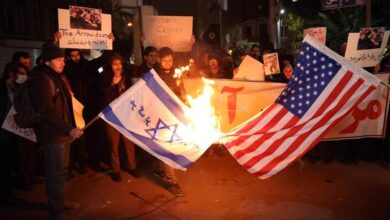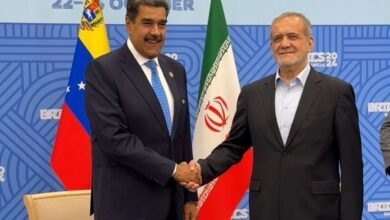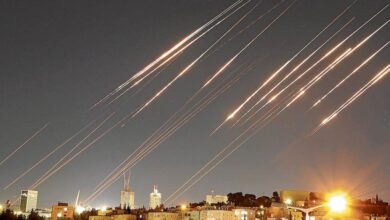Iran, Israel and the Nuclear Pact: All About The New Middle East Landscape
New governments and ancient disputes are the ingredients of the panorama in the Middle East.

Ebrahim Raisi was elected as the new president of the Iranian judiciary. Photo: Mohammad Reza Abbasi
LatinAmerican Post | Abby Araujo
Listen to this article
Leer en español: Irán, Israel y Pacto Nuclear: todo sobre el nuevo panorama del Medio Oriente
There are winds of change in the Middle East, the new government in Israel, the nuclear agreement with Iran, and the interests of the superpowers are the most important elements of the new panorama in the region.
The rivalry between Iran and the Kingdom of Saudi Arabia
To understand the dynamics that are experienced in the Middle East, you have to see the regional powers. In an area where the Muslim religion is a critical part of the identity, the two countries with the greatest representation of the two Islamic currents (Sunni and Shiite) emerge as the two great political poles. The competition between the Islamic Republic of Iran and the Kingdom of Saudi Arabia is historical, their relations are based on mutual distrust and competition between the two powers to impose their own vision of Islam.
Also read: Gallery: an Israel without Netanyahu
The April 9 meeting of the leaders of these two countries represented a way to withdraw from this conflict with heads held high. In addition, the new president of the United States, Joe Biden, has expressed his willingness to rethink his relations with his Sunni ally (Saudi Arabia) due to scandals in violation of Human Rights. The important thing is to see what the impact of Iran's decision on this approach will be.
Rusia ofrece mediar en conflicto entre Irán y Arabia Saudita. https://t.co/ZKkTkfRAtQ pic.twitter.com/sExu369sRE
— Excélsior (@Excelsior) January 4, 2016
Iran elections
Iran went to the polls to elect a new president. The country has been rocked by a series of events that have shaped the electoral landscape, such as the assassination of Iranian General Qassem Soleimani in 2020, by a US drone attack that sparked widespread public anger. The Iranians then shot down a Ukrainian airliner, causing 176 deaths on board, and this, in turn, sparked anti-government protests in several cities.
Despite the fact that for these elections there was a mandatory change of president, since the current leader, Hasán Rouhaní, could not compete again, the results at the polls did not generate any change. The chosen one was Ebrahim Raisi of the Combatant Clergy Society party. However, many Iranians consider the presidential figure as irrelevant, since the true political and religious leader of the Shiites is the figure of Ayatollah Ali Khamenei, who is the Supreme Leader of Iran.
On the other hand, Iran has vastly increased its nuclear enrichment since the United States abandoned the agreement known as the Joint Comprehensive Plan of Action (JCPOA). Furthermore, Iran is considered to be a few months away from creating a lot of fissile material for a nuclear weapon. That is why the United States is considering rejoining the agreement, but only if Iran stops enrichment. However, Iran says the United States must suspend sanctions.
Vladimir Putin fue el primer líder mundial en felicitar a Ebrahim Raisi, el ultraconservador ganador de las elecciones en Irán https://t.co/eMQfEloTEk
— Infobae América (@infobaeamerica) June 19, 2021
Israel's actions in the Palestinian territory
Right now there is also an upsurge in fighting between the Palestinians and Israel. The Human Rights Council urgently establishes an independent international commission, with the objective of investigating the probable violations and abuses in the Palestinian territory, including East Jerusalem. The members of the commission will be appointed, who will report their findings at the 50th session of the Council and at the 77th session of the UN General Assembly. In addition, the text provides that all the underlying causes of the recurrent tensions, instability and prolongation of the conflict be investigated, based on national, ethnic, racial, or religious identity, according to the official website of the Organization of Nations. United (UN).
This, before a new president of the Jewish State, Naftali Bennett, raises a great unknown, by being able to defeat Benjamin Netanyahu within a coalition of diverse parties, between the extreme right, even Arab parties.
[La zona de destrucción] está en el área A. Es el territorio Palestino. #Israel no tiene autoridad jurisdiccional, tales acciones están en flagrante violación de los Convenios de Ginebra que rigen las ocupaciones. https://t.co/bzQj4VvsdY pic.twitter.com/JFPNdfzlUi
— Palestina Online (@Palesonline) July 23, 2019
Joe Biden's position in the Middle East
The previous president of the United States, Donald Trump, presented an Agreement to solve the Palestinian-Israeli conflict, called “Peace for prosperity. A vision to improve the lives of the Israeli and Palestinian peoples ”. However, the Arab League and the African Union condemned Trump's plan and described it as a great waste of the legitimate rights of Palestinians in their territory, according to an article written by Fernando Prieto and published on the Institute's website. Spanish for Strategic Studies (IEEE.ES). That is why Biden seeks a balance point on the Middle East and seems to be in favor of the Arab countries normalizing relations with Israel and considers this a very important step for the celebration of new bilateral negotiations with the Palestinians.
On the other hand, Biden must also take steps to reestablish communication with the Palestinians, which was interrupted in the term of Donald Trump. Therefore, it would be a good sign if President Biden allowed the reopening of the Palestinian Delegation Office in Washington or made contributions again to the UN Agency for Palestinian Refugees, as Professor Yossi Mekelberg states in an article. posted in Chatham House.
Nuclear pact
If anything became clear after the G7 summit and the meeting between Presidents Joe Biden (USA) and Vladimir Putin (Russia), it is the need for a nuclear deal with Iran. After the departure of the United States under the Trump administration, the new administration wants to save the agreement. For this, all parties seem interested and the talks in Vienna are moving forward. However, now Washington asks Tehran in good faith to comply with its requirements, but from Tehran, it is expected that the United States will begin with the lifting of sanctions. This treaty seeks to ensure the non-enrichment of plutonium with arms interests by Iran, in exchange for lifting the sanctions on the country. Saudi Arabia and Israel view these developments with distrust and this could facilitate a new landscape in the Middle East.




